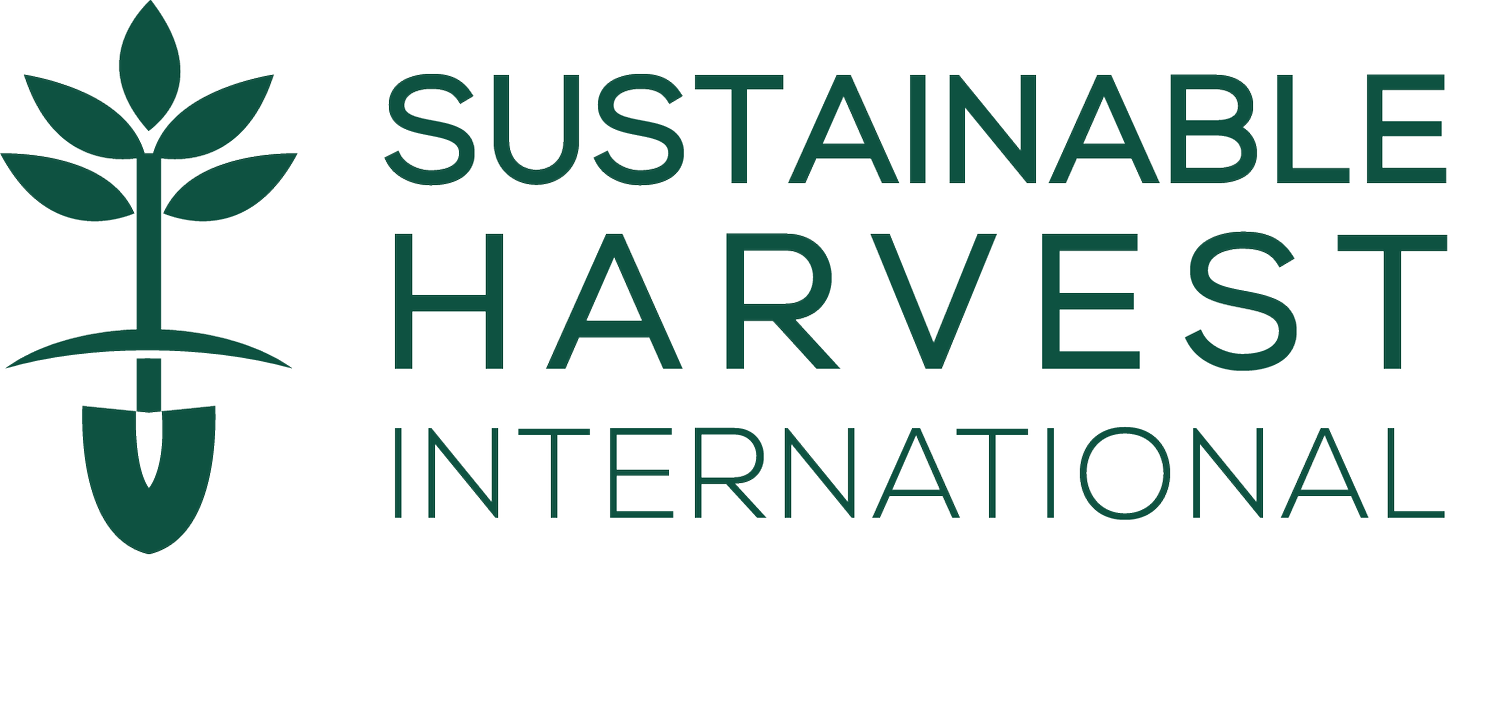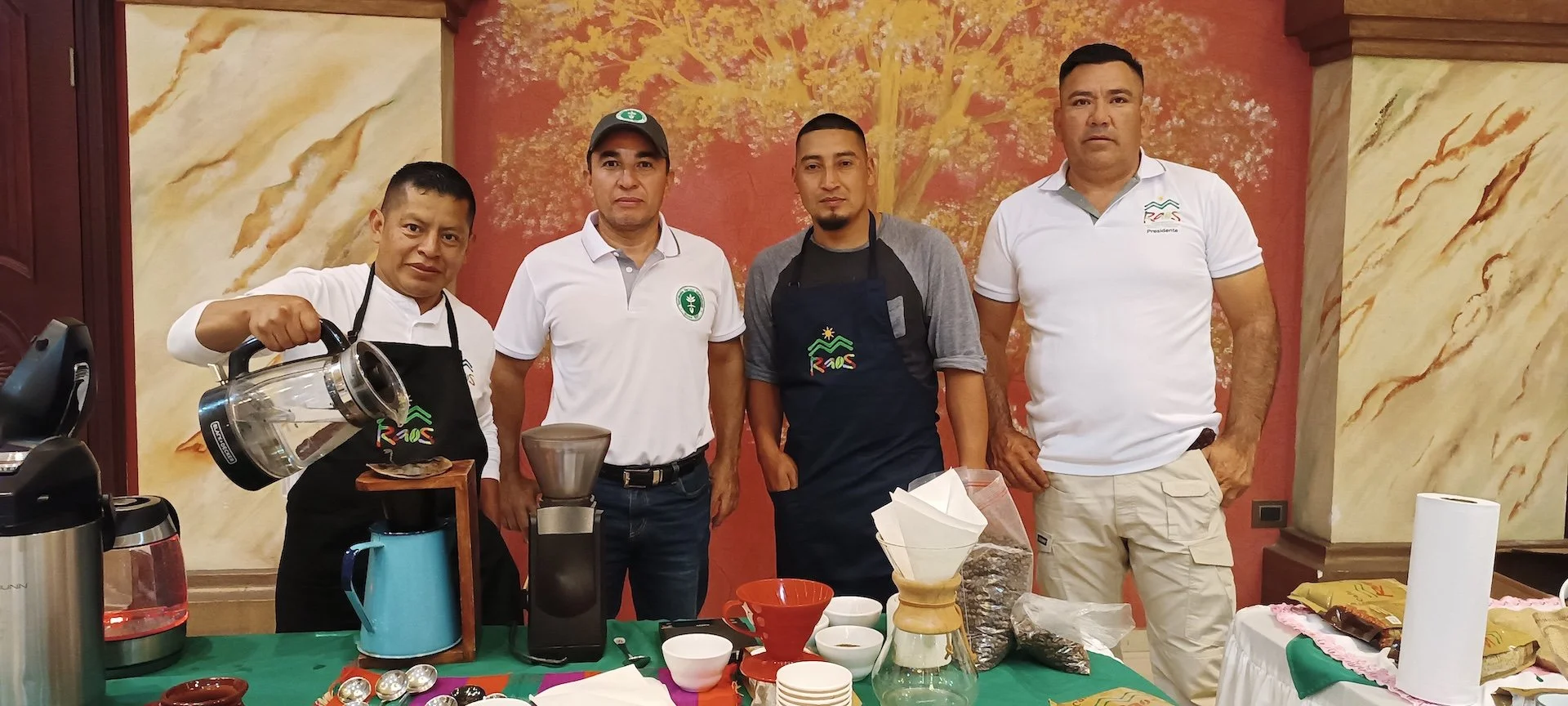When farmers plant trees and crops using sustainable methods, they aren’t just restoring the land — they’re building their family’s future.
Today, Sustainable Harvest International’s (SHI) on-the-ground team in Honduras supports 250 farmers to do just that. With more partnerships and funding, our goal is to significantly increase the number of farmers we reach in the next three years. It’s an ambitious target for a team of nine, but we know that collaboration multiplies impact.
One of the partnerships helping us advance our work and deepen our impact is the RAOS Cooperative.
SHI’s Honduras Program Manager Alex Borjas joins representatives of RAOS at a local fair.
WHAT IS RAOS?
The RAOS Cooperative (Cooperativa de Cafés Orgánicos Marcala Honduras) is a leading farmer cooperative in the organic coffee value chain. Through RAOS, the roughly 300 members are supported through every stage of their work, from planting to exporting their coffee, including:
design and management of organic farms,
crop management,
implementation of organic fertilizers, and
marketing strategies that help increase farmer income.
RAOS ensures that the farmers, farms, and products they support comply with organic standards, exporting products of the highest quality. The cooperative even has its own facilities where members can process their coffee for export. These facilities are fully equipped with all the processing equipment needed to transform the raw bean into the market-ready bean, increasing access to resources for smallholder farmers.
RAOS also provides farmers with maintenance loans aimed at boosting production on small farms. RAOS learned from SHI to encourage farmers to diversify their crops, creating income stability and long-term self-sustainability, while ensuring food production works in harmony with the environment.
SHI’s Honduras Program Manager Alex Borjas supports women participants in RAOS’ program learning to adopt sustainable farming practices.
OUR PARTNERSHIP
Through our partnership, SHI is helping RAOS members renovate coffee plants across multiple farms. Farmers will also learn to implement new regenerative agriculture techniques to improve their soils, increase their yields, and be more climate resilient. RAOS in turn benefits SHI farmers by providing access to their already established export connections and strongly developed local markets—two significant opportunities for farmers to increase their incomes and improve livelihoods.
In addition to our relationship with RAOS, here are three other ways that SHI helps our farmers access local markets:
1. Trade Fairs and Networking Events
We connect farmers with buyers through local fairs and networking venues, where they can showcase organic products and form business relationships. These events, often supported by public or private partners, help promote SHI farmers’ brands and businesses.
2. Communal Learning Spaces
Our Honduras team and RAOS representatives co-host workshops that teach viable business models and regenerative agriculture techniques. These sessions foster knowledge-sharing between SHI and RAOS farmer participants, helping them grow stronger together.
3. Exchange Tours and Reference Markets
Through visits offering technical assistance and tailored learning opportunities, farmers gain firsthand experience in connecting with established markets, building confidence and lasting business contacts.
All of these activities create opportunities for practical learning and business development, and support the long-term goals of SHI farming families.
Representatives of RAOS support SHI’s reforestation initiative in the community of El Chiflador, Honduras.
FARMER-FIRST MODEL
At SHI, every partnership begins with a simple principle: farmers come first.
Through every stage of farm development — planning, maintenance, renovation, harvesting, and marketing — our team walks alongside farmers to help them grow according to their families’ goals.
Thanks to partners like RAOS, our Honduras program continues to expand its reach, restoring land and improving livelihoods across the region.
Together, we’re building a future where every coffee bean tells a story of regeneration and resilience.










